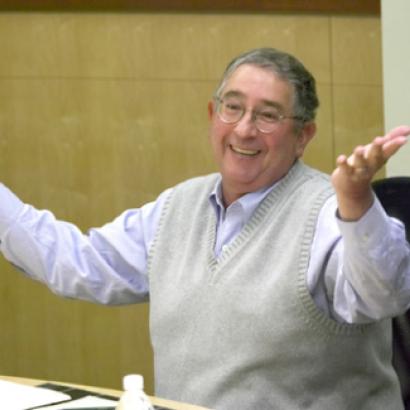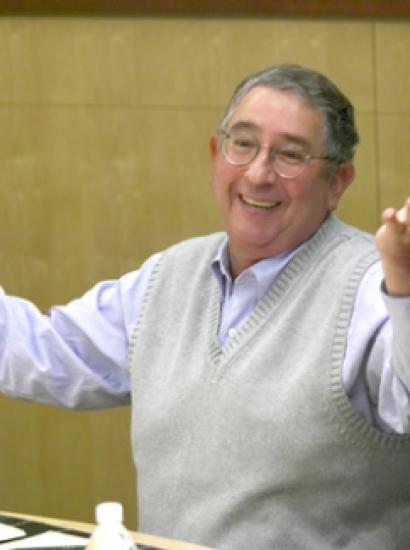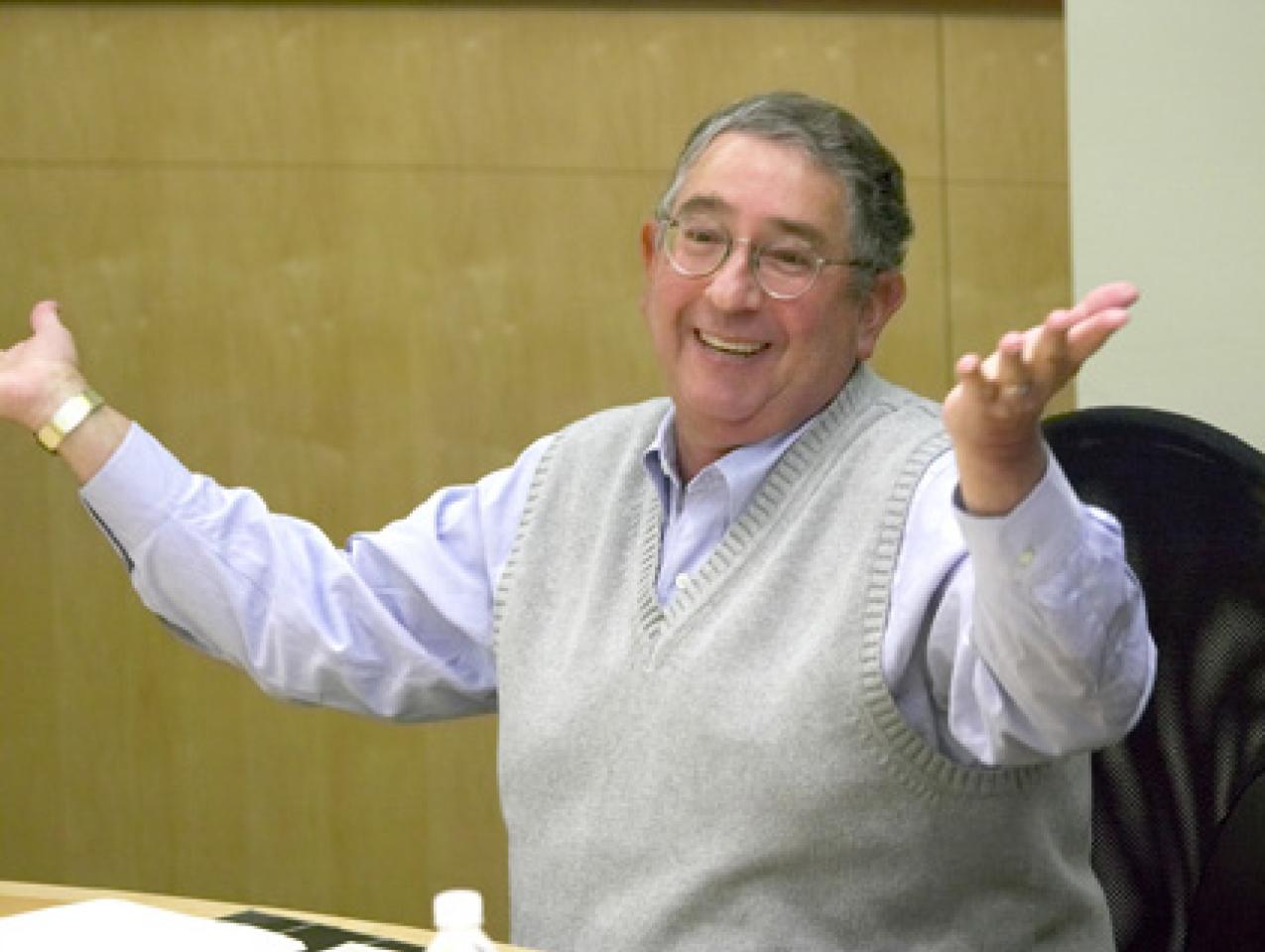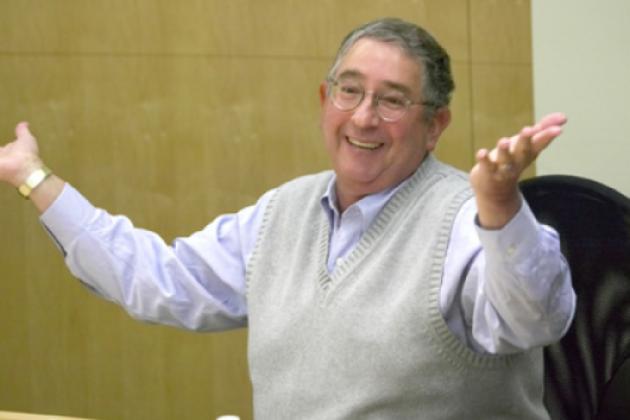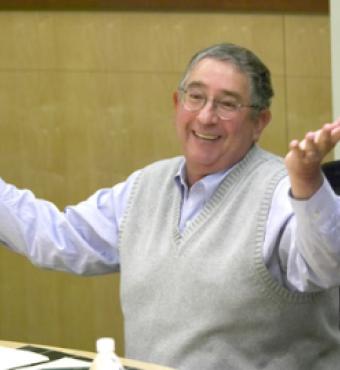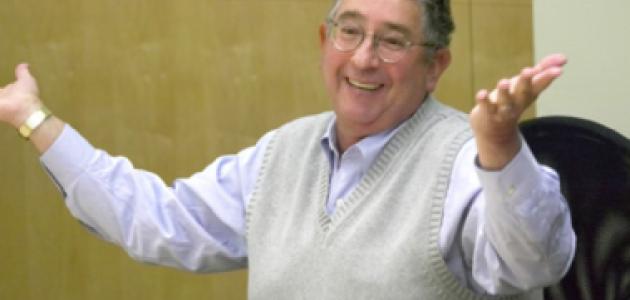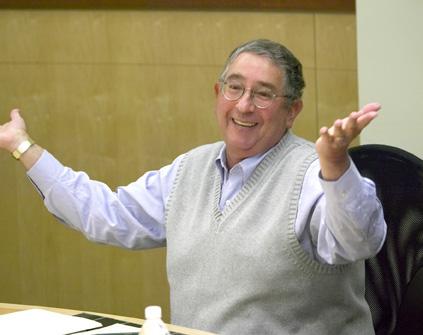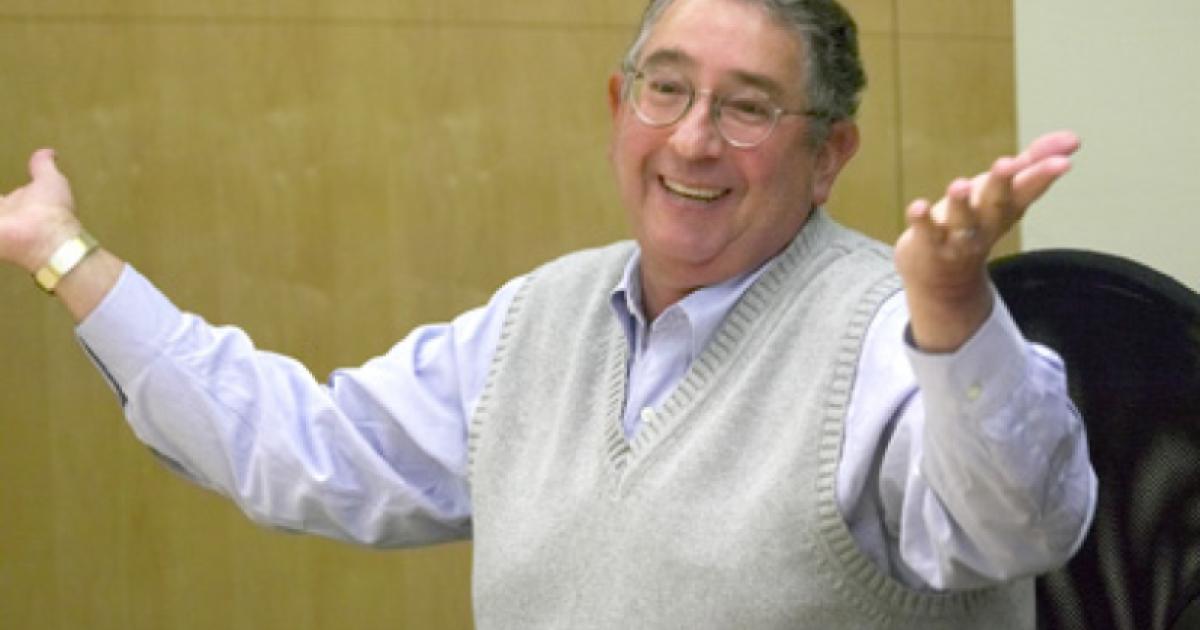- Education
- K-12
- World
- Politics, Institutions, and Public Opinion
- History
I am breaking the rules of book reviewing by admitting right away that I like Chester E. “Checker” Finn Jr., whose memoir, Troublemaker: A Personal History of School Reform since Sputnik, just came out. For an education reporter, Finn is a godsend—the most quotable man in his field. But that also means he is funny, irreverent, and often as irritating as he can be.
I think that’s good. I don’t know him well personally, other than seeing him in the supermarket occasionally. (A very picky shopper, he is murder on the produce.) We don ’t always agree, particularly over a recent column of mine that criticized a report by his Thomas B. Fordham Institute.
But I love the fact that no one is spared his acid sense of humor. That makes him a first-class writer, and Troublemaker may be the best of his many books. The book offers one of the most enjoyable, astute, and fair-minded reviews of the topsy-turvy course of our national effort to improve schools. It flavors that complex tale with the story of Checker Finn, a smart kid from Dayton, Ohio, who wisely attached himself to some of the most thoughtful political figures of his era and brought their practical approach to fixing schools to a new generation. Among them were Daniel Patrick Moynihan, who served as a Democratic senator from New York from 1977 to 2001; William J. Bennett, a Reagan administration education secretary; and Lamar Alexander, an education secretary in the administration of President George H. W. Bush and now a Republican senator from Tennessee.
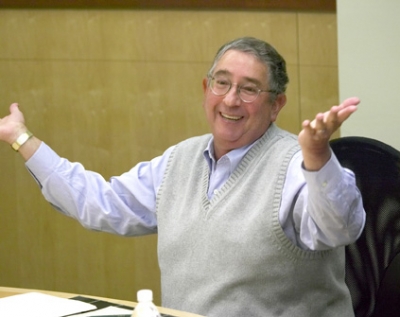
In the education policy wars, where Finn is an active combatant, he is seen on the side of the conservatives, or the traditionalists, or the Republicans —whatever label you prefer. One of the most interesting parts of the book is his description of his gradual transition from being a Kennedy Democrat to a Moynihan sort-of-Democrat to a Bennett and Alexander Republican. Now, as president of a Washington-based foundation and institute initially funded by a Dayton family friend, he doesn ’t work for politicians anymore and doesn’t have to follow others’ views. His book is refreshingly evenhanded about who is right and who is wrong in the endless debates over vouchers, charter schools, teaching styles, and the No Child Left Behind law.
Finn’s opinion of that most important and intrusive of all federal education laws is clear, but only because, he admits, he has the benefit of hindsight.
“Bush and his congressional partners got this backward,” he writes. “The law should have set uniform standards and measures for the nation, then freed states, districts, and schools to produce those results as they think best, perhaps even on timetables of their own devising. Lawmakers should also have insisted on school performance being judged primarily by how much a school causes its pupils ’ achievement to rise, not just how they’re faring in relation to fixed standards.”
He is hard on both sides when summing up the results of forty years of political and ideological maneuvering: “Republicans say they care about standards and choices, but their own constituents are at best smug about today ’s schools and at worst hostile to reform that might help poor and minority kids to enter their suburban enclaves. Both parties have screwy ideas about how to balance freedom and regulation in the K –12 domain, with Republicans shunning uniform standards but tolerating government micromanagement while Democrats seem to care more about where the money goes than whether kids are learning. ”
He is no less critical of himself, revealing the real-world messes his foundation fell into when it decided not only to sponsor reports (usually favorable) on charter schools but to actually oversee some in Dayton, one of the most charter-ized school districts in America. Only five of the ten Fordham-sponsored schools in 2005 –06 performed at an acceptable academic level, he writes. Four “faced grave organizational, governance, fiscal, and leadership difficulties,” and nearly all “have periodic emergencies, agitated parents, or aggrieved teachers, or other crises that we get pulled into; and we ’re losing our financial shirt, investing far more time, energy, and expertise (including pricey outside consultants) in this work than the schools ’ sponsorship fees begin to cover.”
Even if you are among the many people who know Finn and don’t like him, or have just heard of him and still don’t like him, this book is irresistible. He cannot help revealing instructive personal episodes even when they embarrass him or his family and friends. My favorites:
- Finn decides to put his son Aloke, a “thoroughly unmotivated learner,” in the prestigious Sidwell Friends School. Finn writes: “Big mistake. At the high school level, Sidwell seems to work well for motivated and self-disciplined learners, but its lack of structure was exactly wrong for our unstructured and directionless son. He learned very little, his grades were mediocre —and if the school cared about any of this, nobody let on.” Aloke is packed off to boarding school and eventually finds himself, becoming a physician like his mother.
- In 1987, as a senior official in the Reagan Education Department, Finn finds himself at odds with Lynne Cheney, the extraordinarily well-connected wife of the future vice president and a scholar in her own right. Finn has written What Do Our 17-Year-Olds Know? with a friend, future Hoover senior fellow Diane Ravitch, which is in conflict with a Cheney book that used some of the same data. Finn experiences chest pains at work; when Cheney calls at that moment to have it out with him, he is too proud to tell her why he has to put her off, blaming a “family emergency.” The medical crisis subsides. As for Cheney, Finn writes, “today we enjoy a proper though tepid relationship, warmed slightly by the fact that our basic education values are similar. And I ’ve had no more chest pains.”
- Finn’s mentor Bennett is not spared in Finn’s inside story of what happened after the then–education secretary’s famous statement to a Chicago journalist that the city’s schools were the worst in the country. Bennett, Finn writes, “urgently summoned me into his office and asked—I was the research guy, after all—if he was right. I thought fast and said, ‘Well, Chicago has some competition from Newark and St. Louis and Detroit, but you weren ’t wrong.’ ”
-
These stories will not make Finn any less unpopular with people on both sides of our often bitter educational debates, but I wish we had more thinkers as aggravating and insightful as he is. All of us can learn much from him and his book.








